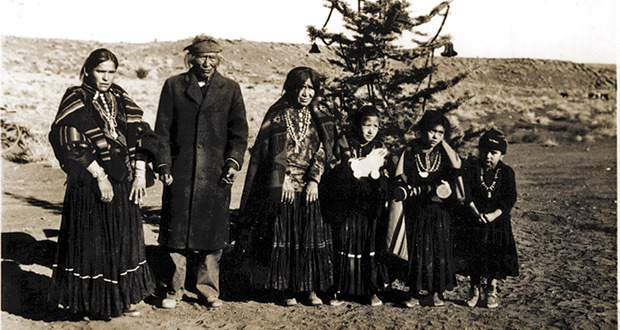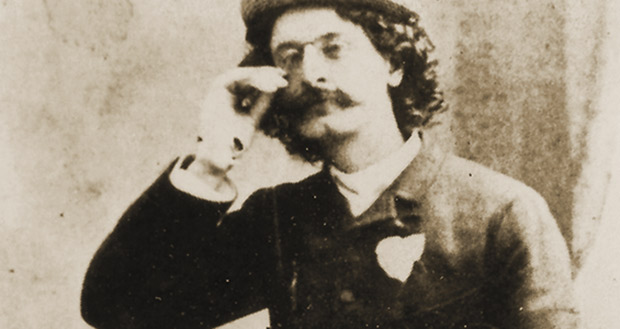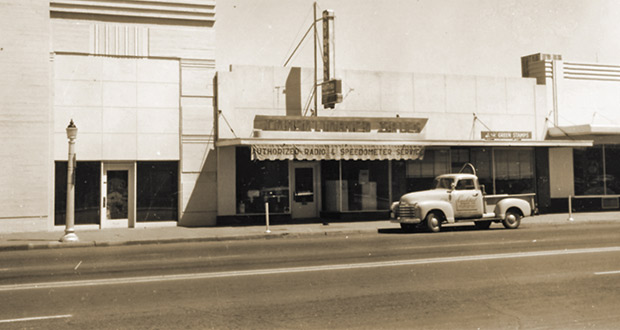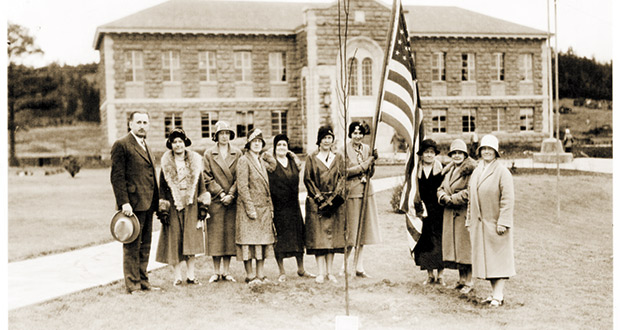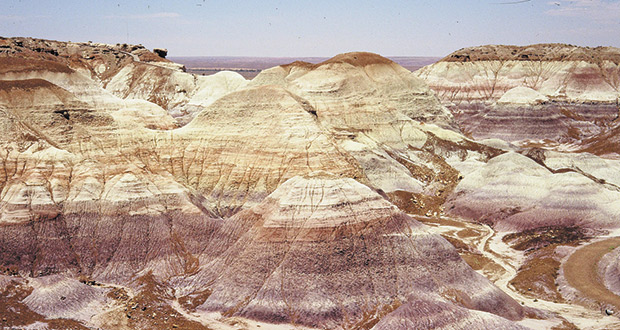The Peshlakai Family of Wupatki
This photograph of a Christmas gathering was taken in 1935 on the grounds of the Wupatki National Monument north of Flagstaff. The family in the photograph is (from left) Sally Peshlakai, Etsidi Peshlakai (Sally’s father-in-law), Etsidi’s wife and their grandchildren.
Tombstone’s Bird Cage Theater
Tombstone’s most celebrated theater was the Bird Cage. In its heyday between 1881 and 1889, the theater offered gambling, liquor, vaudeville entertainment and ladies of the night. In 1882, ~The New York Times~ referred to the Bird Cage as “the Roughest, Bawdiest and Most Wicked Night Spot between Basin Street and the Barbary Coast.”
Cornforth’s Home and Auto Appliance
These photographs from the 1950s show Cornforth’s Home and Auto Appliance, one of Phoenix’s few local business to survive through the millennium.
Pastoral Phoenix
These two photos were taken in 1915; one from a field on Sixth Avenue near what is now Chase Field, the other, somewhere on the Salt River. In 1915, Phoenix was enjoying the last years of the “Gilded Age,” an opulent time that was vanishing everywhere else in the world.
Tucson, Tubac, Tumacacori, ‘Tohell’
Southern Arizona rancher Pete Kitchen was best known for his choice hams and his humor. His hams graced tables from Nogales to Santa Fe, and his humor was part of... […]
Agua Caliente
In 1915, Louis Killeen outfitted two cars and left Phoenix for a two-day drive through the desert to Agua Caliente Hot Springs resort, the ruins of which still stand 30 miles west of Gila Bend, off Interstate 8.
Border Duty, 1916
Pancho Villa’s attack on Columbus, New Mexico, in the early morning hours of March 9, 1916, set in motion a huge mobilization of the U.S. Army and the National Guard. By July 31, almost 111,000 guardsmen were on the border and an additional 40,000 awaited orders in mobilization camps around the country.
Sharlot Hall — On Being Seen In Public With A Democrat
Sharlot Hall got involved in national politics on a couple of occasions, and one, a 1925 trip to Washington D.C. as an elector for Calvin Coolidge, eventually underlined what she called her natural outlaw spirit.
Frank Barrios, World War II
This photo shows a residential part of downtown Phoenix as it was in 1945, when even very fine homes had chickens in the back yard.
The Washington Elm
On a rainy Wednesday, April 22, 1931, members of the Coconino Chapter of Daughters of the American Revolution gathered together with Dr. Grady Gammage, president of Arizona State College (now Northern Arizona University) to plant an elm tree in honor of the bicentennial of George Washington’s birth.
Sedona’s First Post Office
This is the original Schnebly homestead on the banks of Oak Creek in what would become the town of Sedona.
‘I shall never come back to Arizona’ – Zane Grey
Western novelist Zane Grey (1872-1939) wrote this dramatic sentence to his wife, Dolly, in a bitter letter penned from his Tonto Basin cabin. He complained about other things, as well, and the above statement was followed with : “…the country has been ruined by motorists. The Navajo are doomed. The beauty and romance of their lives dead.” Dolly and Zane had honeymooned at El Tovar Hotel at[...]

